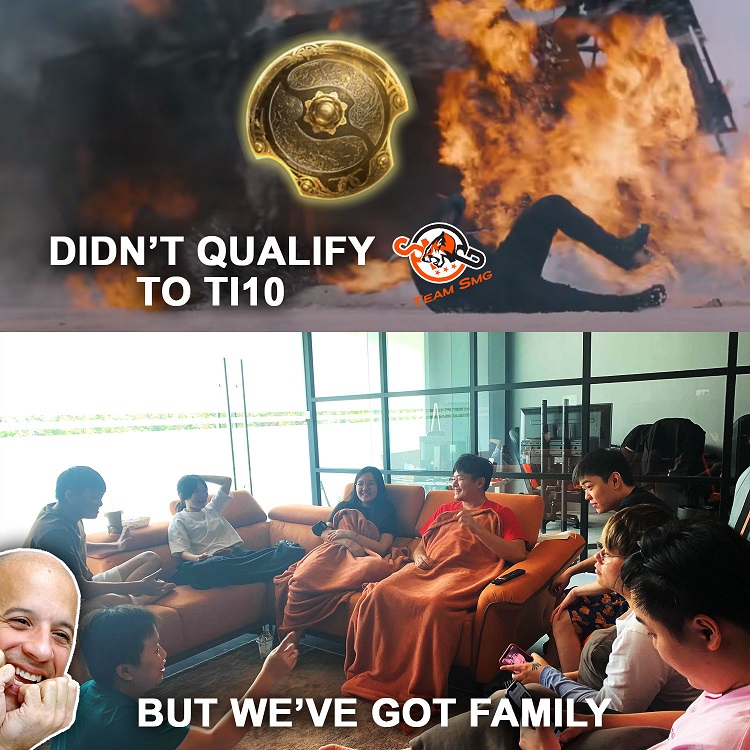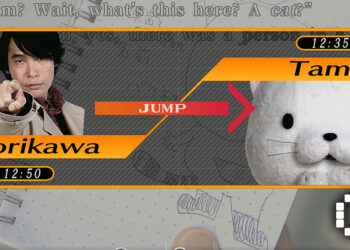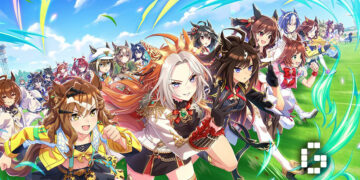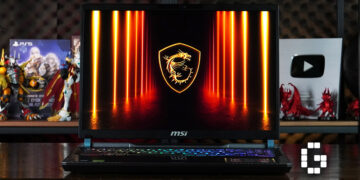For esports enthusiasts within the SEA region, Yap Chee Loong, otherwise also known as Kenchi, is a name you likely recognize. The Malaysian has been in the industry for over a decade now, and remains based in the country. He’s now CEO of IO Esports, as well as being the owner of Team SMG. He took some time to sit down with us for a brief interview, which has been edited for clarity.

ON MALAYSIAN ESPORTS
What do you think of the growth of esports in Malaysia? How would you compare the industry now, to back when you were an active player?
Kenchi: Back then, I don’t think we called it esports, maybe more like a hobby. Parents didn’t like it even though you’re committing to games full time to earn money. I feel it’s at least more recognized, with more parents giving their support where previously they didn’t or couldn’t afford to provide financial help. We used to live off cheap, simple meals, but with recognition, prize money and salaries, you at least won’t suffer from not having basic living expenses.
It’s grown quite a bit. I wouldn’t say it’s 100% supported, but with government support, clubs, and the general ecosystem, it’s much better now.
What kind of esports (games) are popular and trending in Malaysia? For context, what do you feel are most popular overseas?
Kenchi: Based on the events we do and viewership, in Malaysia, it’s PUBG Mobile, Mobile Legends, and maybe Dota 2 or Valorant. In Malaysia, those two mobile games are the most popular, while it’s different for Europe or other countries.
Worldwide, I think it’ll be League of Legends, Counterstrike, and Dota 2. In Europe and the US, mobile games aren’t considered esports yet. EU would be the three games I mentioned, League of Legends is dominant in the US, while everything is big in China. In Southeast Asia, I feel that PC games are getting less popular, with a mobile focus instead.

While you mentioned things have become easier, what kind of support would you want to see for the local esports scene?
Kenchi: More government support? Since esports isn’t under the sport category yet, tax on the winning prize pool is still an issue. Vaccines for players too, who need to compete in international tournaments. Compared to Olympic sport competitors, esports players are more left behind. There’s also a need to apply for working visas for foreign / import players. Those visas are a different category, so hopefully one day I can apply for an athlete visa for them.
From a developer side, I think it’s important that they make sure the ecosystem is built correctly for local scenes.
Then there’s the association side. I feel they could get the right esports stakeholder to create a strong digital footprint in the country, look for new investors or commercial partners as part of their strategy. Physical sports, activities and promotional campaigns are being restricted due to the pandemic, so esports can be an alternative for investors.
The Malaysian government has had a few initiatives for esports stuff, but then there’s not much news after the initial funding. What do you think of it? How do you think they can improve on this?
Kenchi: I think it’s fine, as I feel their plans for the funds is to make the ecosystem better, like how the SEA Games have esports, to organize a tournament and get the right players to prepare for the games. They also need the right direction as it’s a lot of work for the local associations. With the government, associations and experienced stakeholders, I think they can make our esports scene better.
Would you think it’s more practical for the government to improve on the actual internet infrastructure first before tournaments?
Kenchi: I feel both are important. The infrastructure will be very expensive for the whole country and I believe the MCMC has a plan for it, to have fiber or UNIFI at a more affordable price, just that it’s not being implemented fast enough. You need the internet for the tournament, and you also need the platform to compete on, after all.

ON THE ESPORTS INDUSTRY
Would you say it’s much easier to get into the esports industry full time?
Kenchi: I would say yes, with more events compared to last time. It’s more professional now, and growing really fast, creating a lot of different job opportunities. Specifically, in broadcasting, producing, GFX, designers, observers. Observing may sound easy, but it actually isn’t.
I think there’s a lot more opportunities, something like a TV station. Plus, digital sports require a lot of digital marketing. To me, one of the hardest jobs would be being a professional player, as I think their knowledge now is still lacking; it’s not just skill you need, as having a good mindset is also important.
Would you say it’s uncertain to work in esports, because if you don’t have enough experience, you’re less likely to be successful? But if you’re not as successful, how do you get more practice?
Kenchi: For me, I think you can always find a lot of ways to practice. Let’s say a shoutcaster, as an example. Practice from streaming first. The way you play games and the way you talk is your way of entertaining. As a player, you need to lose more, then think about why you’re losing, as losing is part of becoming a champion one day, unless you give up.

For broadcasting and producing in the company, we began from graphic designing. Slowly we learnt along the way, studied new technology, bringing in virtual sets, that sort of thing. The self-learning is important and we dare to try everything, and our clients also support us in testing new technology and new ways to do esports.
ON ORGANIZING / PLAYING EVENTS
One of the most important things when it comes to online esports and broadcasting is the internet connection. How do you handle those problems?
Kenchi: We have backup internet, with two nearby studios. We got to work closely with TM and TIME from Malaysia Cyber Games, sponsorships; two different brands with different backbones. Basically, we switch studios if needed. If the situation is really critical, then I’ll work with my business partners to help resolve the issues.

How did you adapt to organizing events or playing in this pandemic environment?
Kenchi: What we can do is to try our best to entertain the online viewers through the content we create and exploring technology. Maybe we bring in someone famous for one or two sessions, for casting. Maybe have better graphics and virtual sets. I prefer having offline events, mixing with virtual sets, because the atmosphere of the audience, crowd, is totally different.
What’s the biggest thing you learnt from working with virtual sets?
Kenchi: I think I can create things with green screens that look very realistic, like Ready Player One. There’s the hardware e.g. graphic cards, then the skill from drawing / designing, which we’re also improving on. I learnt that anything is possible in esports, as we’re relying on a majority of online viewership around 80 to 90% compared to offline. If you do real sports online only, it looks really weird.
ON ESPORTS IN SOUTHEAST ASIA
In SEA, the popular games are more esport / competitive games, but what if someone wants to stream other games like action / narrative games?
Kenchi: I advise you to start with a popular game first until you get followers, then you can do whatever you want and still have a big viewership. I don’t think it’s very good to go against the trends, but also, you need to create something for yourself and your followers first so that you can entertain the people, and they follow you for you, not because of what you play. It’s about slowly moving on to other things afterwards. After all, if you keep on streaming a popular game only, it gets boring too.

Would you say that if you want to get into esports in Southeast Asia, you should focus on mobile first?
Kenchi: For now, yes, definitely.
Since mobile gaming is conquering the SEA market, would it be the top source of gaming in the near future?
Kenchi: Maybe it will change, but for the next 3 years in SEA, mobile will definitely be the champion.
ON THE BUSINESS
Team SMG is involved in quite a few games, like Valorant and PUBG Mobile. They’re similar in that they’re both FPS games. Are there many differences when you compare the esports scene for PC and mobile?
Kenchi: Honestly, both of them have their unique features, but the SEA market is considered a more mobile-centric region and performs better than PC games. Mobile gameplay is also shorter than PC, but viewership wise, it’s much bigger. Singapore’s Free Fire World Series 2021 saw over 5.4 million peak viewers, compared to League of Legends World Championship in 2020 hitting over 3.8 million peak viewers.
We still invest in both mobile and PC, for worldwide reach.
What happened to the cyber cafes? What about the business in the future?
Kenchi: At one point, there were 100+ cyber cafes, but I’m making the decision to close it. It isn’t just because of the pandemic. SEA is going more mobile, so I don’t see the market there anymore.

How did you move on from being a professional player to an organization?
Kenchi: So I started as a player, where I was already thinking about what I can do after that. I wanted to be a businessman, so I began from the cyber cafe business. I went to the Philippines first because I felt the cyber cafe business there was slower growing, for bigger opportunities.
It’s a very different move from player to business management, so I learnt and became better. At the cyber cafes, we had small tournaments for teams, first as marketing until it became very big. I helped out Fnatic as a coach, trying to apply what I learnt from the business to help them.
An organization is kind of like managing a team, like having five players learning how to have the same objective, except with like 200 people. Of course, I’m not going to be managing it all myself, so I need to have the key persons to shoulder some of the jobs. If you have the passion, do it right. Most people give up halfway because they don’t have the courage to face their mistakes and problems, like losing. The feeling sucks, then they feel it’s wasting their time, then they move on into another industry. You need to have courage, overcome it, then improve to avoid the same struggles.
That’s all the time we had! Thanks to Kenchi for coming on with us for the interview. Esports hasn’t been an exception in getting hit with problems from the pandemic, for both teams and organizers alike. It’s nonetheless still a fairly young industry comparatively, with plenty of room to grow in an ever expanding digital space. With Kenchi being one of the old guard still active in this space, who’s to say where the local esports scene can go, finally breaking it through world wide? It’s an uncertain yet exciting time, so enthusiasts and hopefuls best look out.











![[EXCLUSIVE] Creative Masterminds from Gearbox Software Reveal What Makes Borderlands 4 Worth the Wait](https://cdn.gamerbraves.com/2025/07/Borderlands-4-at-Bilibili-World-2025_Interview_FI-360x180.jpg)




![[ASIA EXCLUSIVE] Bringing Back a Classic: Inside the Making of FINAL FANTASY TACTICS – The Ivalice Chronicles](https://cdn.gamerbraves.com/2025/06/FFT-Ivalice-Chronicles_Interview_FI2-360x180.jpg)













